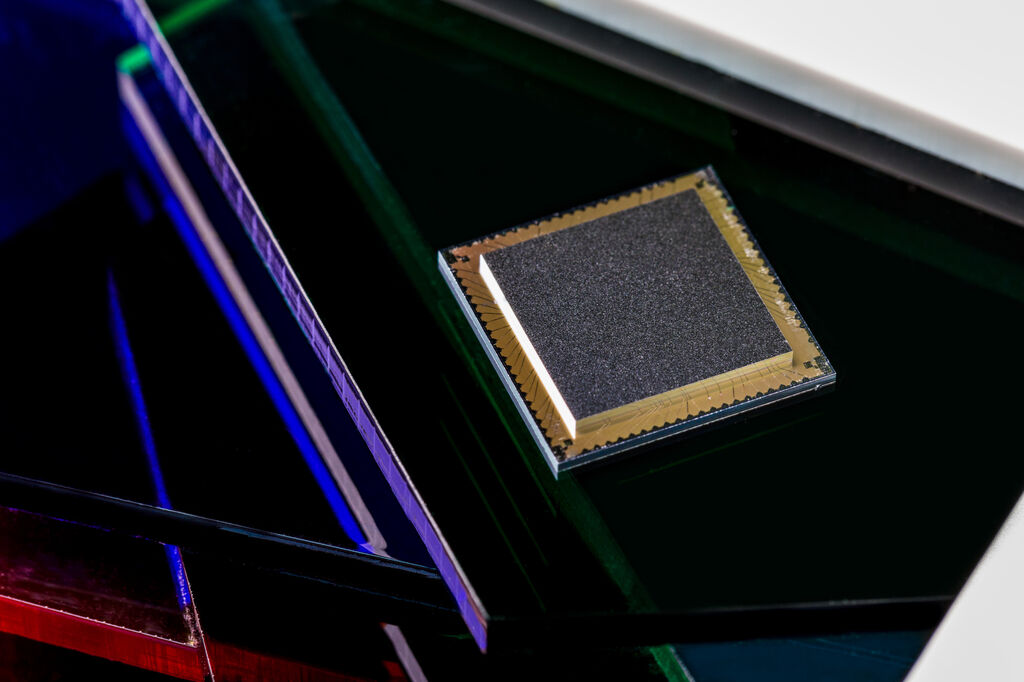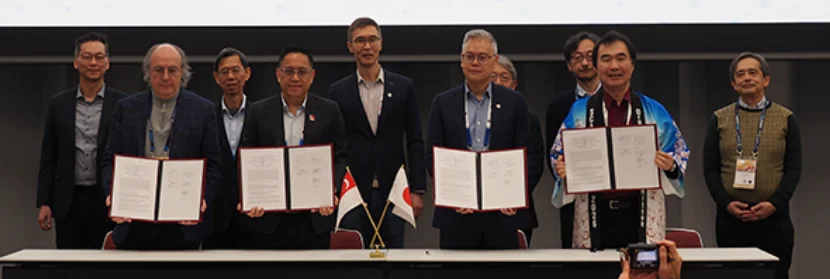Insider Brief
- IQM Quantum Computers, Riverlane, and Zurich Instruments have launched the SurgeonQ project, a collaboration to develop the first quantum computing platform capable of executing multiple real-time quantum error correction (QEC) operations.
- The project will focus on lattice surgery, an established QEC method that enables complex logical operations by merging and reshaping qubits within a two-dimensional lattice, aiming to improve both flexibility and low-latency error correction.
- By integrating Riverlane’s QEC Stack Deltaflow, IQM’s superconducting hardware, and Zurich Instruments’ Quantum Computing Control System, the SurgeonQ platform seeks to achieve QEC cycle times in the microsecond range, accelerating the path to fault-tolerant quantum computing.
- Image: IQM Chip (IQM)
PRESS RELEASE — IQM Quantum Computers, Riverlane, and Zurich Instruments have announced the launch of the SurgeonQ project, a strategic collaboration to create the first quantum computing platform capable of running multiple real-time quantum error correction operations. The project represents progress towards commercially viable quantum computing systems.
Quantum computers hold the potential to tackle some of society’s most complex issues, from designing new materials for clean energy to accelerating drug discovery and optimising supply chains. Achieving this will require quantum computers to scale from performing a few hundred error-free operations, as seen in today’s best machines, to trillions. This leap necessitates the development of advanced techniques collectively known as quantum error correction (QEC).
Currently, QEC faces a trade-off between flexibility and low latency. Flexibility refers to running several different QEC experiments using the same setup. To minimise latency, the system is typically constrained to running a single, predefined QEC operation, adversely impacting flexibility. To support fault-tolerant quantum computing (FTQC) at scale, both flexibility and low latency are essential.

The SurgeonQ project will address this trade off. It will focus on a QEC experiment called lattice surgery. This established method operates on logical qubits encoded from multiple physical qubits. It allows complex logical operations by merging and reshaping these qubit clusters within a two-dimensional lattice. The SurgeonQ platform is a first step towards a lattice-surgery platform that can select and execute multiple QEC operations in real-time and on IQM’s superconducting hardware.
“Launching SurgeonQ is an exciting step toward overcoming one of quantum computing’s toughest barriers: advancing quantum error correction from experimental prototyping to practical, deployable platforms,” said Marco Ghibaudi, Vice President of Engineering at Riverlane. “This collaboration with IQM Quantum Computers and Zurich Instruments is only the beginning as we continue to develop the technology and roadmap needed to scale quantum computers to commercial-grade capacities.”
Key to the project success will be the combined expertise of all three partners:
- Riverlane, the global leader in quantum error correction technology, will provide its flexible and efficient QEC Stack Deltaflow, which can detect and correct quantum errors in real-time.
- IQM Quantum Computers, a global leader in superconducting quantum computers, will supply a 20-qubit processor and provide its expertise on experimental implementations.
- Zurich Instruments, recognised globally for quantum control systems, will integrate its ‘Quantum Computing Control System’ allowing for real-time communication between the quantum processor and QEC Stack, essential for rapid error correction.
Dr. Inés de Vega, Vice President for Quantum Solutions at IQM Quantum Computers, said: “We are making progress in advancing error correction techniques and have recently released a very ambitious roadmap to achieve fault tolerance in the next few years. We trust that our collaboration with Riverlane and Zurich Instruments in this project will significantly push forward these efforts.”
By combining these technologies, SurgeonQ will enable the QEC cycle times in the order of a microsecond. This achievement will allow for the execution of complex QEC tasks and for seamless switching between QEC routines without compromising computational speed. By the end of the project, Riverlane, IQM, and Zurich Instruments will have established a roadmap to scale their QEC implementation to thousands of logical qubits, paving the way to commercial-grade fault-tolerant quantum systems.
“As a company dedicated to advancing the frontiers of quantum technology, we are thrilled to contribute to the groundbreaking SurgeonQ project. By integrating Riverlane’s cutting-edge QEC expertise with our state-of-the-art Quantum Computing Control System, we work towards the next step in scalable and real-time quantum error correction. The collaboration between Zurich Instruments, Riverlane, and IQM allows all partners to advance towards the ultimate goal of achieving useful quantum computing.” said Flavio Heer, CTO of Zurich Instruments.
The potential economic impact of error-corrected quantum computing is vast, with estimates suggesting a global market value of up to £850 billion by 2040 (BCG, 2024). Quantum computers will potentially enable more efficient industrial processes, significantly reducing energy use and CO₂ emissions. For example, quantum-enhanced catalyst design could drive substantial improvements across chemical manufacturing industries, potentially reducing global CO₂ emissions by more than seven gigatons annually by 2035 (McKinsey, 2022).
The SurgeonQ project is expected to yield immediate benefits for quantum research and commercialisation efforts worldwide. By fostering high-tech jobs, R&D growth, and strategic international collaboration, this initiative solidifies Riverlane, IQM, and Zurich Instruments as key players in quantum technology advancement.















